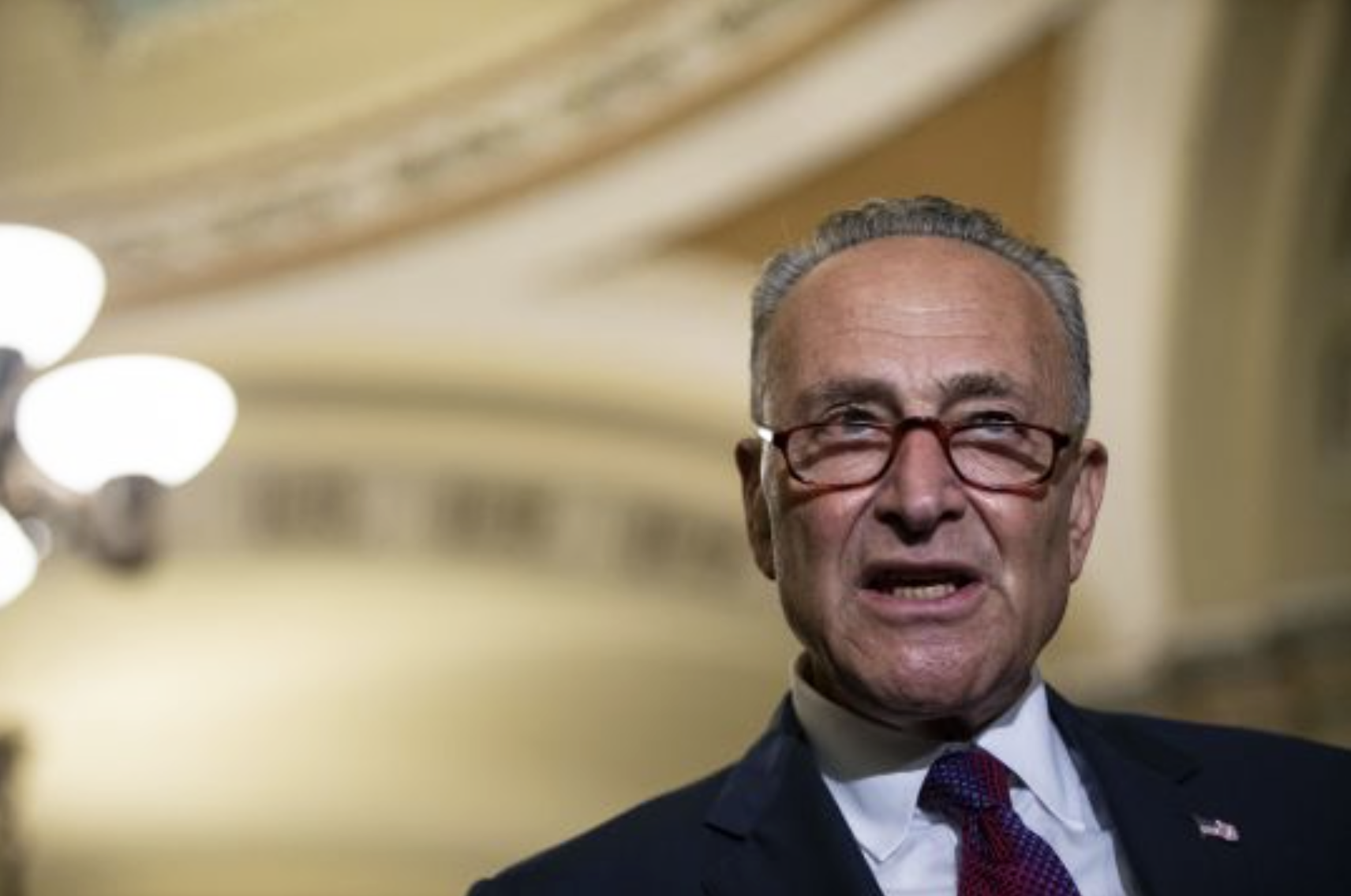By: The Editorial Board – wsj.com – July 10, 2018
Brett Kavanaugh’s nomination now heads to the Senate, and the most important fact to understand is that the debate in the world’s greatest nondeliberative body is not about the future of the Supreme Court. That’s a sideshow. The real debate is about the future of the Senate—specifically, which political party will control that now narrowly divided chamber in 2019.
Minority Leader Chuck Schumer has already said he will “oppose Judge Kavanaugh’s nomination with everything I have.” Nice to know he’s given it such careful thought. But Mr. Schumer knows defeating the judge is a long shot, especially after Maine Senator Susan Collins made encouraging comments Tuesday about Judge Kavanaugh’s lower-court opinion on ObamaCare and his statement in 2006 that Roe v. Wade is a binding precedent.
In any case, what Mr. Schumer cares about more than defeating Donald Trump’s nominee is to be the next Majority Leader. Toward that end he wants to help his 10 incumbent Senators running in November to navigate between a political base that demands opposition to all things Trump and broader state electorates that might come to think that Judge Kavanaugh is an excellent nominee.
The best way to do that is to postpone a confirmation vote beyond Nov. 6. That way Joe Donnelly in Indiana, Heidi Heitkamp in North Dakota and Joe Manchin in West Virginia wouldn’t have to take a politically difficult vote before Election Day.
They and other Democrats like Claire McCaskill in Missouri risk infuriating Democratic activists if they vote for a nominee who will be described day after day on MSNBC and CNN as a threat to every right they have. On the other hand, the Senators might motivate Trump voters to turn out against them if they oppose Judge Kavanaugh. So Mr. Schumer’s main priority is delay, and delay some more.
Keep this in mind as you begin to hear Democratic charges that the confirmation process is moving too fast, that it’s a railroad job, or a cover-up. You will also soon hear demands for documents, millions of documents, from Mr. Kavanaugh’s tenure as staff secretary in the George W. Bush White House and on the staff of independent counsel Ken Starr in the 1990s.
Democrats aren’t looking for anything in particular, though if they find something negative they’ll use it. The main purpose will be to find an excuse to raise more questions, to seek still more documents, and to interview more witnesses—all with a goal of pushing Senate hearings into the autumn and delaying a vote into the lame duck session of Congress or even next year.
Presumably Republicans understand this strategy, and they are under no obligation to cooperate. They can tolerate reasonable document requests that bear on the duties of a Supreme Court Justice. But Judiciary Chairman Chuck Grassley has no reason to allow an open-ended dive into the George W. Bush and Bill Clinton archives.
The job of a White House staff secretary is to manage paper flow to the President, so everything more or less came across Mr. Kavanaugh’s desk. But that doesn’t mean it reveals how he might rule on any current controversy. The same goes for the Starr records.
The best evidence for how Mr. Kavanaugh would rule as a Justice is how he has ruled as a judge on the D.C. Circuit Court of Appeals. And with some 300 opinions in 12 years, Brett Kavanaugh has a more extensive public record than perhaps any modern nominee other than Robert Bork. Antonin Scalia had only been on the D.C. Circuit for four years when he was nominated to the High Court.
***
Mr. McConnell is saying he intends to have a vote in the fall, and the goal should be to have a Justice Kavanaugh ready to sit on the High Court when it opens its new term on Oct. 1. This gives the Judiciary Committee ample time to hold hearings in August with a debate and vote on the Senate floor in September.
Sixty to 70 days is within the norm for previous nominees between nomination and confirmation. Ruth Bader Ginsburg took 42 days, Sonia Sotomayor 66 and Elena Kagan 87. The average wait for those three Democratic nominees was 65 days. Neil Gorsuch took 66 days to confirm last year. Democrats will object, but barring some major revelation, that is a fair timeline for confirming Judge Kavanaugh.
Senators sign up to take votes like this—before the next election.
To see this article, click read more.
![]() Source: A Senate Deadline for Kavanaugh – WSJ
Source: A Senate Deadline for Kavanaugh – WSJ
 Listen Online
Listen Online Watch Online
Watch Online Find a Station in Your Area
Find a Station in Your Area







 Listen Now
Listen Now Watch Online
Watch Online
